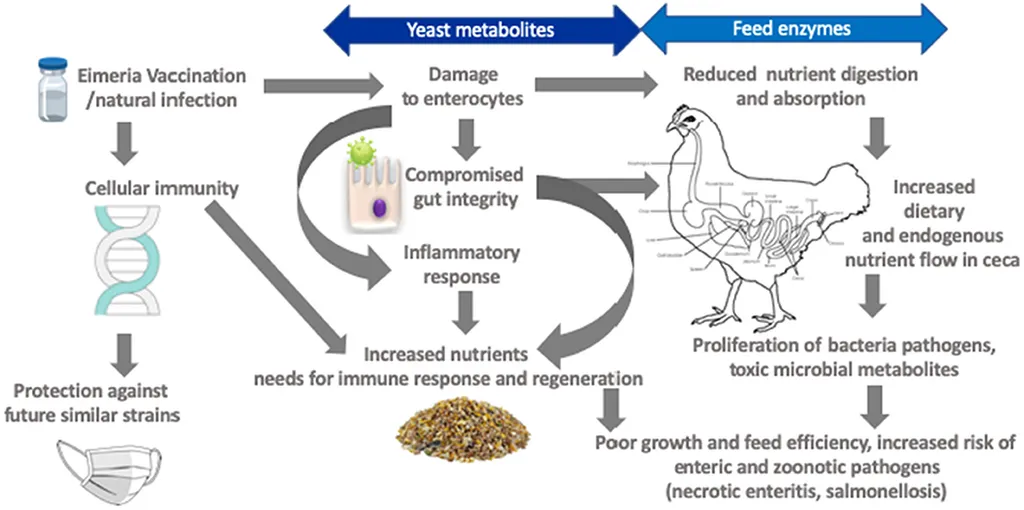In the quest to optimize poultry production, researchers have uncovered a promising avenue through the supplementation of yeast-derived nucleotides (YN) in drinking water for broiler chickens. A recent study led by Vera Perricone from the Department of Veterinary Medicine and Animal Sciences (DIVAS) at the University of Milan, published in the journal ‘Poultry Science’ (known in English as ‘Poultry Science’), sheds light on the potential benefits of this approach for both growth performance and gut health.
The study involved 480 one-day-old male Ross 308 broilers, divided into three groups: a control group and two treatment groups receiving YN at different concentrations in their drinking water. The findings revealed that YN supplementation significantly improved body weight and average daily gain during the grower phase, particularly at the higher inclusion level. “This suggests that yeast-derived nucleotides can play a crucial role in enhancing early growth performance in broilers,” Perricone noted.
Beyond growth performance, the research delved into the impact of YN on intestinal health. Analysis of intestinal morphology showed improved villus-to-crypt ratios, indicating better nutrient absorption. Gene expression analysis further demonstrated the upregulation of tight junction-related genes, which are essential for maintaining the integrity of the intestinal barrier. “The enhanced expression of these genes suggests that YN supplementation can strengthen the gut barrier, potentially reducing the risk of infections and improving overall health,” Perricone explained.
The study also explored the effects of YN on the cecal microbiota, revealing an increase in alpha diversity indices over time. This diversity is a hallmark of a healthy gut microbiome, which is crucial for efficient digestion and overall health. While the higher concentration of YN did not significantly alter beta diversity, the temporal shift in microbial community composition highlighted the dynamic nature of the gut microbiome during the broilers’ growth period.
The practical implications of these findings are substantial. Administering YN via drinking water offers a flexible and targeted approach to supplementation, allowing producers to tailor interventions during critical growth phases or under stress conditions. This method could prove particularly valuable in commercial poultry production, where optimizing growth performance and gut health are paramount.
The research not only underscores the potential of yeast-derived nucleotides as a dietary strategy but also opens new avenues for further exploration. Future studies could investigate the long-term effects of YN supplementation and its potential interactions with other dietary components. Additionally, the practical application of these findings in various production systems and environmental conditions could provide deeper insights into the broader implications for poultry health and productivity.
As the poultry industry continues to evolve, the integration of innovative nutritional strategies like YN supplementation could play a pivotal role in enhancing production efficiency and sustainability. This study, published in ‘Poultry Science’, marks a significant step forward in our understanding of how dietary interventions can shape the future of poultry farming.

